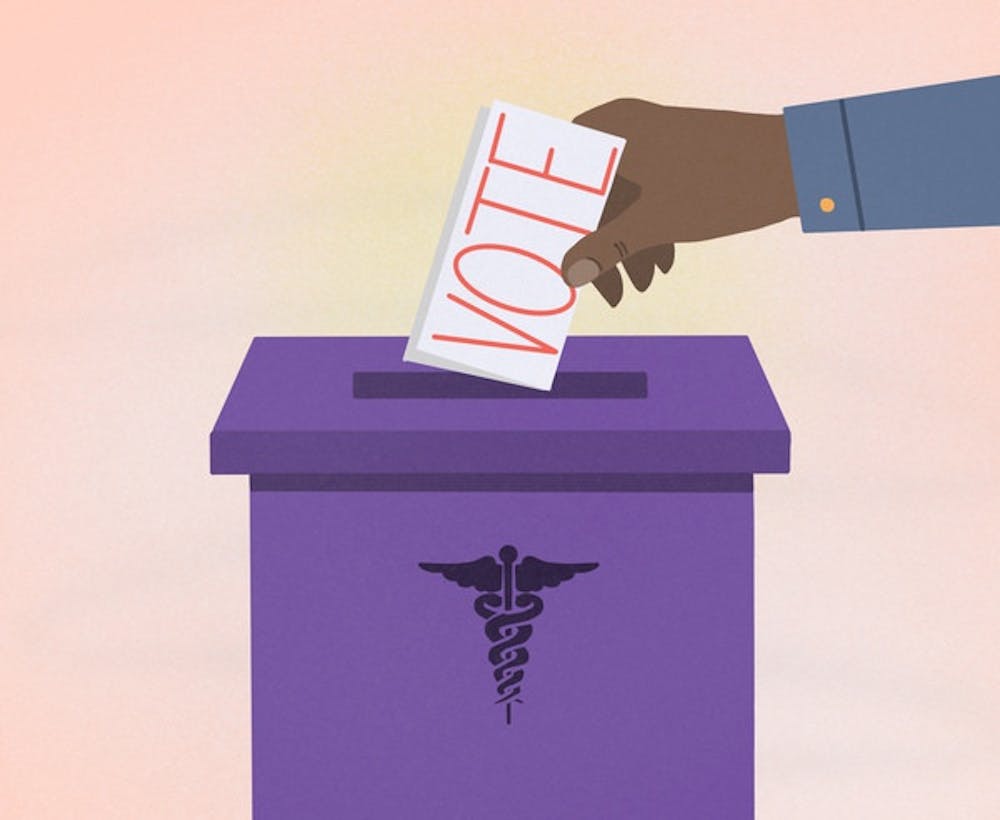With current distrust of elected officials, intense political debates around the dinner table and a swarm of misinformation on social media, some may feel isolated from decision-making in the democratic process.
Amid these challenges, participatory budgeting offers a “beacon of hope that we can find opportunities for governments to uplift this idea of ‘people power’ in a time when I think you really need it most,” said Jonathan Collins, assistant professor of political science, public policy and education.
Participatory budgeting is a bottom-up investment in public infrastructure where citizens get a direct say in how to fund public projects, Collins explained.
Approximately $1.5 million total has been allocated to the central Providence and Pawtucket and Central Falls Health Equity Zones for participatory budgeting — areas that have been impacted by environmental and health burdens. Community members will be able to determine how the funding is spent through participatory budgeting.
The participatory budgeting process begins with representatives from various community organizations connecting with residents to understand the problems they are facing, which can take the form of conversations or field surveys, Collins explained. Then, these representatives turn public preferences into policy proposals that are then voted on by the public.
Dominique Resendes, assistant director of place-based initiatives at One Neighborhood Builders, explained that the steering committee felt it was important to include young people in this decision-making process because a lot of these policies impact them. Resendes explained that the voting age for the participatory budget process is therefore 13 years old. Assistant Director of Collective Impact Lucy Berman ’19 added that this gets young people excited to register and show up for the polls and instills good voting habits early on.
Participatory budgeting in Health Equity Zones
Health Equity Zoning targets “structural drivers that are leading to poor health outcomes in populations,” said Christopher Ausura, HEZ initiative director for RIDOH. He said that historically, public health officials focused on interventions that were mostly specialized rather than holistic, but these interventions were low-impact and high-cost.
Ausura said that although communities may face similar problems, the roots of the issues are caused by different factors, such as infrastructure, physical environment or historic inequity from redlining. “We’re really trying to address the underlying structural barriers and the systems and institutions that have, whether intentionally or unintentionally, created these barriers” in accessing health care, he said.
“We are bringing the people who understand the problems and have the answers and know how to solve them to the table — not in a transactional token way, but building their ability to lead and drive long-term change,” Ausura added.
ONE Neighborhood Builders
ONE Neighborhood Builders is a nonprofit committed to developing affordable housing and connecting with residents to foster “healthy, vibrant and safe communities,” according to their participatory budgeting press release. ONB will facilitate the participatory budgeting process to determine how $1 million in state funds will be invested in central Providence.
The group started working with participatory budgeting in Olneyville in 2015, and later expanded to include other neighborhoods in central Providence, Berman said.
Berman explained that there are many barriers to voting, such as being undocumented, being unable to take off work to go to the polls, not feeling informed enough or not trusting the government. Participatory budgeting, on the other hand, is “a very low-barrier, multi-pronged approach to voting that has online options, multi-day in-person options, different locations and ballots in different languages,” Berman said. “We’re hoping that this can have a long-term impact on voter behavior and on civic engagement.”
Resendes explained that Health Equity Zoning addresses immediate needs — such as connecting people with rent support, transportation and translation services — while working to remove structural barriers to positive health outcomes.
Ausura said that the life expectancy in Rhode Island is “not trending in the right direction, which means we’re not succeeding at the bottom-line mission to protect the health of the public and advance positive outcomes for the communities across the state.”
Ausura said that the communities receiving funding were determined by looking at factors like social vulnerability, population density and racial demographics. Other social programs in place are just safety nets but don’t break the greater patterns of inequality, he explained. Working with the community through HEZ strives to get to the root of these problems.
Community impact
Jennifer Recinos, a member of ONB’s Resident Advisory Council, explained that she is both hopeful and skeptical about the participatory budgeting process. She said that this distrust “comes from a big disappointment in being raised in Providence and seeing how the schools have failed us, how the social justice systems have failed us or how the police have failed us.”
In her role, Recinos works on bringing as many people as she can into the decision-making process. She also noted that the number of people from the community participating in their meetings has increased over time, and the group has created a way for the community to feel connected.
“There’s the actual investment that's going to be made through the participatory budgeting initiative and health equity in these communities,” Collins said. “But then there's a secondary thing, which is this larger awareness that is created around the conversations that are happening in these health equity zones, and I think the latter is the thing that I find maybe even more inspiring.”
Collins said that participatory budgeting is becoming “contagious” in the state, and the process has been used for issues around education. The state is “establishing itself as one of the premier beacons for participatory democracy, and I think the world will be watching.”
Recinos said this work has illuminated several community needs — such as water fountains, homeless shelters and warm places for people to sit. “A million dollars feels like a lot but it's a drop in the bucket when it comes to the systemic issues that are here,” she added.

Elysée is a writer for metro, a producer for the Bruno Brief podcast and an aspiring card game creator. She is a second-year student studying International and Public Affairs on the Policy and Governance Track.





